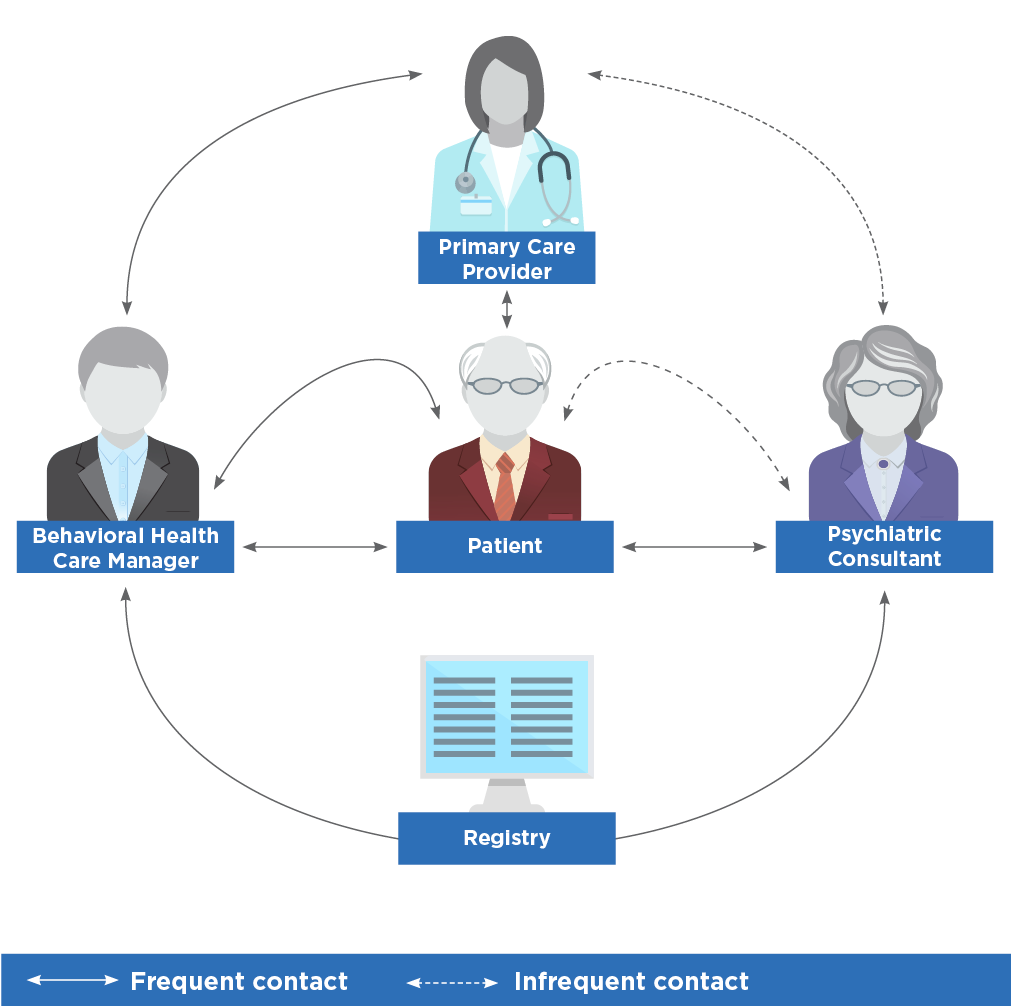Over the past decade, the integration of behavioral health and general medical services has been shown to improve patient outcomes, save money, and reduce stigma related to mental health. Significant research spanning three decades has identified one model – the Collaborative Care Model – in particular, as being effective and efficient in delivering integrated care.
The report Dissemination of Integrated Care Within Adult Primary Care Settings: The Collaborative Care Model, developed jointly by the American Psychiatric Association (APA) and Academy of Psychosomatic Medicine (APM), reviews the current evidence-base for the Collaborative Care Model, essential implementation elements with detailed examples, lessons learned by those who have implemented the model, and recommendations for how to advance its use to better meet the whole health needs people with mental health conditions
The Role of the Collaborative Care Model in Reducing Mental Health Inequities (.pdf)
A recent systematic review found strong evidence that collaborative care is effective for improving depression outcomes in racial ethnic minority populations. Download this PDF to learn more about this review and four strategies for harnessing the potential of CoCM to reduce mental health inequities.
How It Works

The Collaborative Care team is led by a primary care provider (PCP) and includes behavioral health care managers, psychiatrists and frequently other mental health professionals all empowered to work at the top of their license. The team implements a measurement-guided care plan based on evidence-based practice guidelines and focuses particular attention on patients not meeting their clinical goals.
The Collaborative Care Model differs from other attempts to integrate behavioral health services because of the replicated evidence supporting its outcomes, its steady reliance on consistent principles of chronic care delivery, and attention to accountability and quality improvement (QI). Over time, expert consensus has identified five essential elements of the Collaborative Care Model.
Patient-Centered Team Care
Primary care and behavioral health providers collaborate effectively using shared care plans that incorporate patient goals. The ability to get both physical and mental health care at a familiar location is comfortable to patients and reduces duplicate assessments. Increased patient engagement oftentimes results in a better health care experience and improved patient outcomes.
Population-Based Care
Care team shares a defined group of patients tracked in a registry to ensure no one falls through the cracks. Practices track and reach out to patients who are not improving and mental health specialists provide caseload-focused consultation, not just ad-hoc advice.
Measurement-Based Treatment to Target
Each patient's treatment plan clearly articulates personal goals and clinical outcomes and are routinely measured by evidence-based tools. Treatments are actively changed if patients are not showing improvement as expected until the clinical goals are achieved.
Evidence-Based Care
Patients are offered treatments with credible research evidence to support their efficacy in treating the target condition. The Collaborative Care Model (CoCM) has a substantial evidence base for its effectiveness, one of the few integrated care models that does.
Accountable Care
Providers are accountable and reimbursed for quality of care and clinical outcomes, not just the volume of care provided.
Key Findings
The Collaborative Care Model has the most evidence among integration models to demonstrate its effective and efficient integration in terms of controlling costs, improving access, improving clinical outcomes, and increasing patient satisfaction in a variety of primary care settings – rural, urban, and among veterans.
Multiple studies show that having a psychiatrist to provide caseload consultation to a care manager who coordinates with patients and a PCP is an essential element of the model and correlates with improved outcomes.
